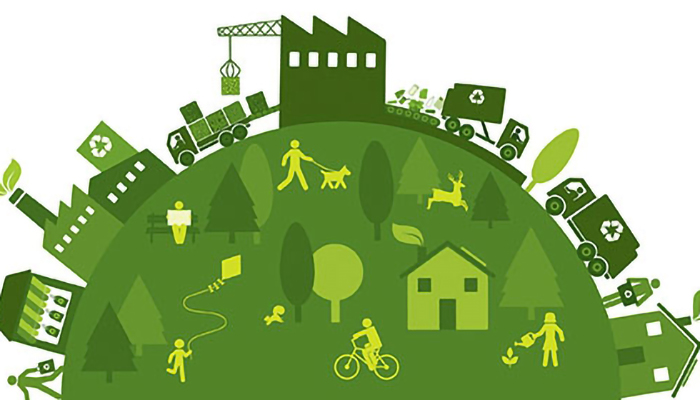Is Sustainability a Trend?
November 16, 2021
Every day, global citizens are inundated with news coverage of wildfires, floods, droughts, and other climate disasters which leave many viewers feeling helpless. According to the Intergovernmental Panel on Climate Change, a 2.5 to 10 degree Fahrenheit temperature rise is forecasted to occur in the next century. This will spell out irrevocable damage to ecosystems, geopolitical disruptions, and mass extinctions. Who is left to fight these substantial foes?
Many would suggest the younger generations, as they will become the hapless heirs of the planet in whichever state it ends up. But are the members of Generation Z worthy adversaries for such an immense task? The reputation that American teenagers have for being apathetic about societal problems is simply a myth. They have a lot more motivation than given credit for. More teenagers than ever before are opting for eco-friendly actions in their everyday lives. This step has the potential to shift the environmental tide, but we need to make sure that this is not just a trend.
A survey conducted by the Pew Research Center in April of 2021 found that young adults are more likely than members of the older generations to make lifestyle changes to help reduce the effects of climate change. This idea is supported by an interview conducted at Wheaton Warrenville South High School. “I want to help the planet and my community as much as I possibly can, even if it means starting small like recycling and then building my way up to get involved in the bigger projects,” said Rulan Betti, a student at WWS.. While following through on beliefs can be difficult for teenagers due to parental control, limited political and economic power, and time constraints, taking small steps can still engage individuals with a larger movement.
The choice between action and inaction may seem like a simple one for teenagers today. But what happens when doing something doesn’t make a measurable difference? The apathetic stereotype of Gen Z may not entirely be false, although it’s more along the lines of pessimism than complacency. Inheriting a world that is rapidly slipping down into climate disaster certainly doesn’t give a positive sense of agency to its beneficiaries. “Large corporations and lack of government action regarding sustainability is a much larger issue than me using plastic cups sometimes,” Mary O’Connell, a WWS student, explained. “I think individuals should do what they can to help and to spread awareness but we should also recognize that the companies who are largely contributing to the issue should be more responsible for it.” A mindset with this sort of nuance may prove to be advantageous in future climate policy. Only time will tell if sustainability is simply a trend of the current generation, but its ramifications for environmental awareness have the potential to transform the planet towards a better, greener future.

